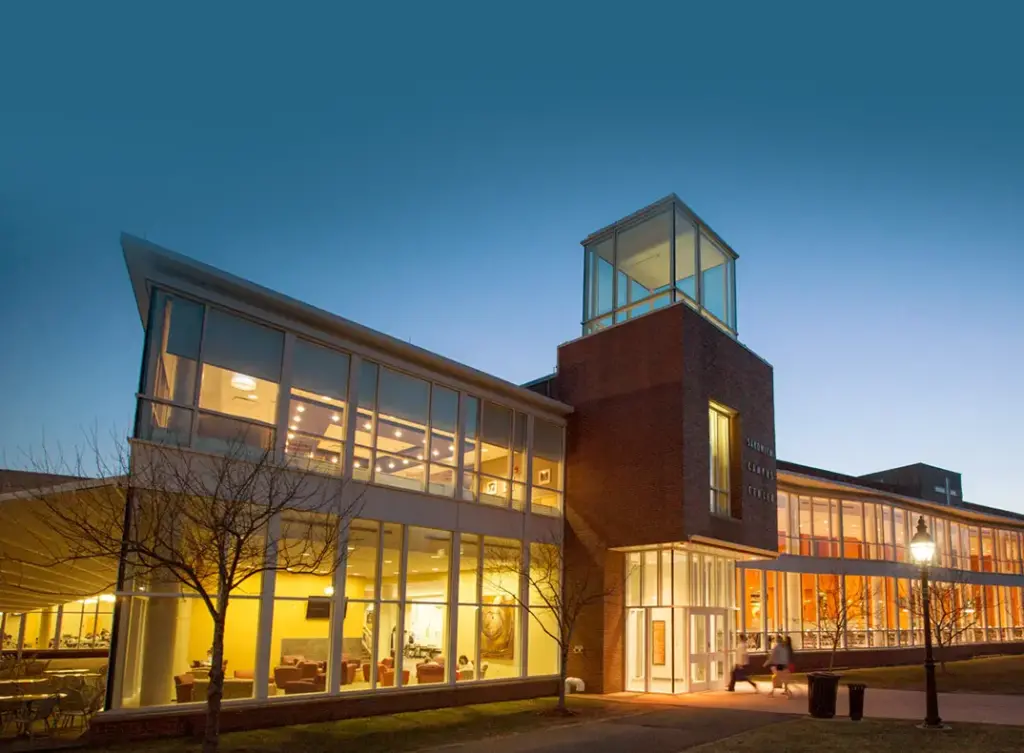In a state filled with well-known institutions of higher learning, Merrimack College still stands out with a unique history and approach to education.
Formed in 1947, Merrimack College has a well-deserved reputation for providing exceptional education. U.S. News has ranked the school among the best colleges in the northeast, one of the top engineering schools, and one of the best colleges for veterans. The college is also ranked as one of the best value schools in the whole country.
In addition, Princeton Review has joined U.S. News in naming the school one of the best colleges in the northeast. Money Magazine ranked Merrimack College as one of the best colleges for ensuring the economic success of its graduates.
The accolades for being a great school for veterans are fitting. Merrimack College began for that very reason. It’s creation also shows the vision and determination of a small group of people who wanted to create “The College on the Hill.”
Post-War America
World War II ended in 1945. Soldiers returning home faced the challenges of making the transition from military to civilian life after helping win the biggest war in human history.
Against this backdrop, Richard Cushing, the Archbishop of Boston, invited the Order of St. Augustine to create a new college in the Merrimack River Valley north of Boston. Merrimack College was founded in 1947 in North Andover.
The college is one of two Roman Catholic schools in the United States affiliated with the Order of St. Augustine. The other is Villanova University, founded in 1842 in Philadelphia.
During Cushing’s time as Archbishop, which lasted from 1944 to 1970, he promoted the establishment of schools and advocated for education. He also officiated the marriage of John F. Kennedy and Jacqueline Lee Bouvier in 1953 and authored many books, including a biography of Pope Pius XII.
Rev. Vincent A. McQuade
No one person is more responsible for the creation of Merrimack College than Rev. Vincent A. McQuade. A native of Lawrence, Mass., he graduated from Villanova University and later earned a master’s degree and doctorate from Catholic University in Washington, D.C. McQuade served as both founder and first president of Merrimack College. He presided over the opening of the college in September 1947.
Ordained in 1934, McQuade worked on the faculty of Villanova from 1938 to 1946. Part of his duties included working with war veterans.
Upon returning to his home in the Merrimack Valley, McQuade met and began a long friendship with Cushing. The two complimented each other, according to an exhibit on McQuade at Merrimack College. Cushing was outgoing and gregarious. McQuade was serious and shy.
Cushing sparked the idea for the school that would eventually be ranked as one of the best colleges in the Northeast and provided financial support. McQuade oversaw the step-by-step process of creating the college: purchasing the land, getting the proper zoning, securing a charter from the state, creating a course catalog and overseeing construction of the first building.
In March 1947, making a presentation to the state Department of Education, McQuade said: “Motivated by the educational traditions of the Augustinian Order, Merrimack College will constantly strive to advance the fields of human knowledge, render service to the nation and give its students a combination of scientific and humanistic learning which will fit them to take their positions in society as Christian gentleman.”
McQuade served as president of Merrimack College until 1968 and died in 1971. The library on campus, the last building erected during his time as president, is named after him.
Merrimack College Today
Founded on the Augustinian principles of hospitality, community and the pursuit of truth, and created in part to serve returning U.S. soldiers, Merrimack College has expanded and flourished through the decades.
The school now educates thousands of students each year. They include veterans, those from the Merrimack Valley and across Massachusetts. And because of the school’s move into online learning, students now attend Merrimack College from all over the world.
More than 22,000 people have graduated from Merrimack College. The college is now a centerpiece of the Merrimack Valley, with a 220-acre campus that features almost 40 buildings.
However, the school has not lost its commitment to the Augustinian values and devotion to education that drove its creation and helps it to mainitain its status as one of the best colleges in the Northeast.
